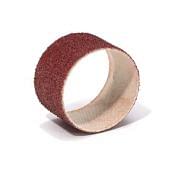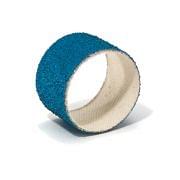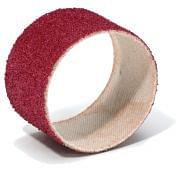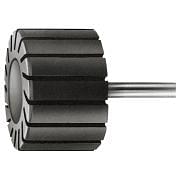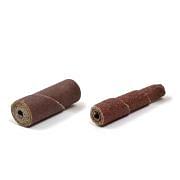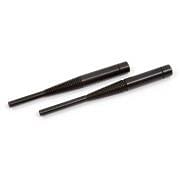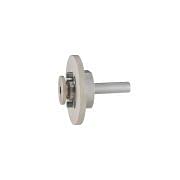Abrasive spiral bands
Abrasive rings are essential tools in machine shops, used for finishing and polishing metal surfaces. These tools, also known as abrasive flap rings, abrasive ring discs or abrasive strips, are made of high-quality abrasive materials, mounted on flexible backings to easily adapt to the shape of the workpieces being processed. Sanding rings are used in a variety of industries, from the automotive sector to tool manufacture, ensuring precision and efficiency in machining processes.
Advantages of Abrasive Rings
- Versatility: Abrasive rings are available in different grit sizes and materials, allowing them to perform roughing, finishing and polishing operations on various types of metals.
- Efficiency: Thanks to their structure, they allow fast and uniform material removal, reducing processing time.
- Durability: The quality of the materials used in the production of the abrasive rings ensures a long service life and high resistance to wear.
- Adaptability: The abrasive rings adapt easily to complex and uneven surfaces, guaranteeing an even finish on even the most difficult workpieces.
Features of the Abrasive Rings
- Abrasive Materials: Generally made of aluminium oxide, zirconium or ceramic, offering different combinations of hardness and strength to meet specific requirements.
- Flexible Backings: The flexible base of the abrasive rings makes it easy to reach corners and edges, guaranteeing precise and accurate work.
- Variable Grit Size: Available in different grit sizes, from coarse grit rings for quick material removal to fine grit rings for polishing and finishing.
- Compatibility: Suitable for use with various machine tools, including angle grinders and grinding machines.
Sanding rings are particularly useful in machine shops for machining metal components. They are used for:
- Roughing metal surfaces: Removing large amounts of material quickly.
- Precision finishing: Creating smooth, even surfaces ready for further treatment or assembly.
- Polishing: Giving a bright, clean appearance to machined parts.
- Burr and burr removal: Improving the quality and safety of metal components.
Abrasive rings are an indispensable component for machine shops, providing efficiency, versatility and precision in machining operations. Choosing the right type of abrasive ring, according to the specific machining requirement, is essential to optimise production processes and achieve high quality results.

